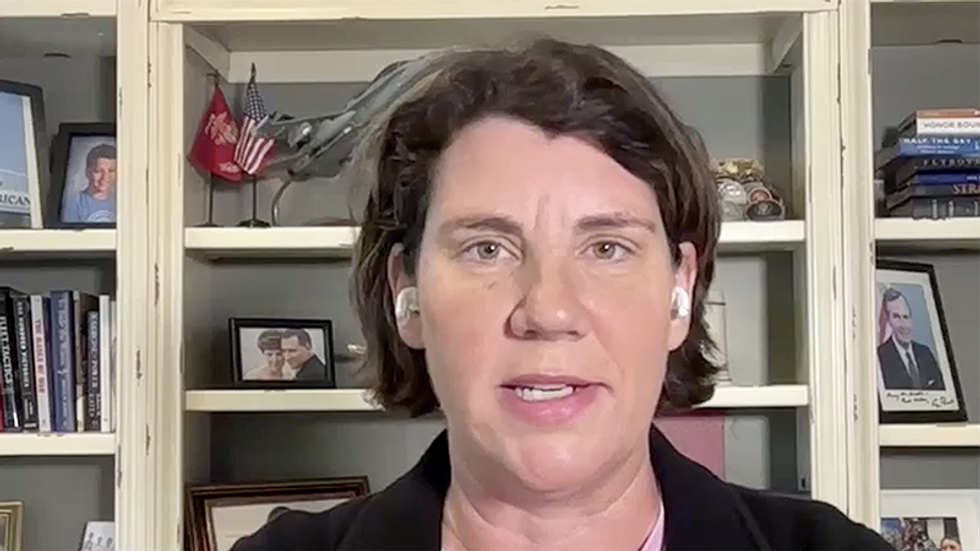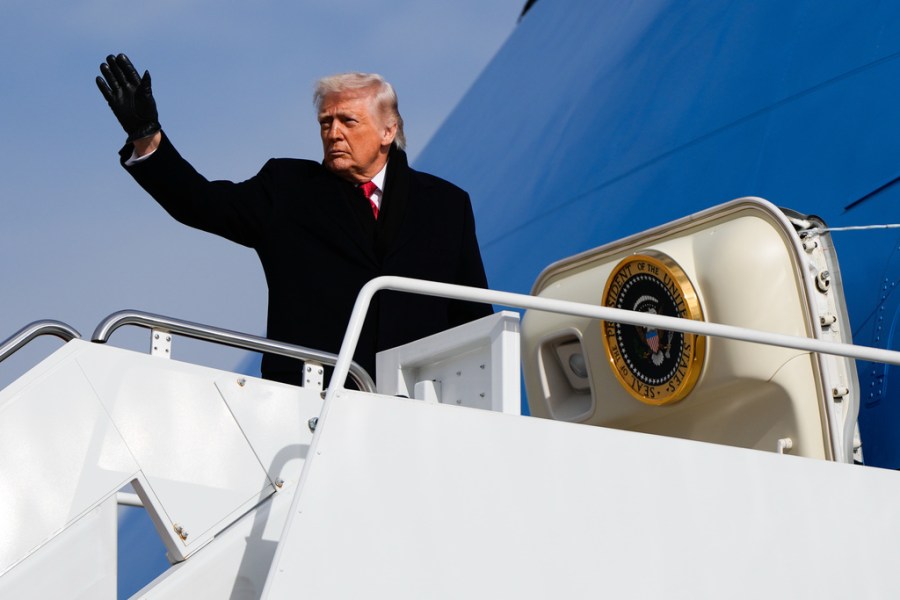
UPDATE: In a stunning rebuke, former Marine fighter pilot Amy McGrath has condemned both President Donald Trump and Secretary of Defense Pete Hegseth for their speeches delivered on Tuesday, leaving top U.S. military leaders in disbelief. McGrath’s comments, made during a CNN interview immediately following the speeches, have ignited a firestorm of reactions.
Addressing claims made by Hegseth regarding combat standards, McGrath emphasized the importance of equal criteria in military operations. “When I flew my combat missions, there was not a set, male standard and a female standard for flying an aircraft onto the back of an aircraft carrier,” she stated, stressing that performance is what truly matters in combat roles.
McGrath did not hold back, stating, “Pete Hegseth still has a lot to learn, I think, unfortunately.” She pointed out that the notion of separate standards for male and female combat soldiers is outdated and misleading. “Combat jobs have had one standard for a long time,” she affirmed, highlighting the progress made in gender equality within military ranks.
While addressing Hegseth’s remarks, McGrath remarked that the larger issue was the incoherence in U.S. foreign and defense policy presented during the speeches. “That speech was bonkers by the president, and everybody sitting in that room knows that we don’t have a coherent foreign policy or defense policy,” she asserted. This statement underscores a growing concern among military leaders regarding the direction of the U.S. military strategy.
McGrath’s comments resonate deeply, as they reflect the frustrations of many service members who have fought for equal treatment and standards in the military. Her passionate defense of established combat protocols serves as a reminder of the ongoing struggle for equality and the need for clear, consistent policies in defense.
As the fallout from these speeches continues, military leaders and analysts alike will be watching closely. McGrath’s bold stance may galvanize further discussions on the future of military standards and the critical need for a unified approach in U.S. defense policy.
What to watch for next: The implications of McGrath’s remarks could lead to increased scrutiny of military leadership and their policies. As debates unfold, expect more voices to emerge from within the military community advocating for clarity and equality in combat standards.
This urgent situation highlights the importance of maintaining high standards in the U.S. military and the necessity for leaders to address the complexities of gender equality in combat roles. The military community is at a pivotal moment where voices like McGrath’s are crucial in shaping future policies.







